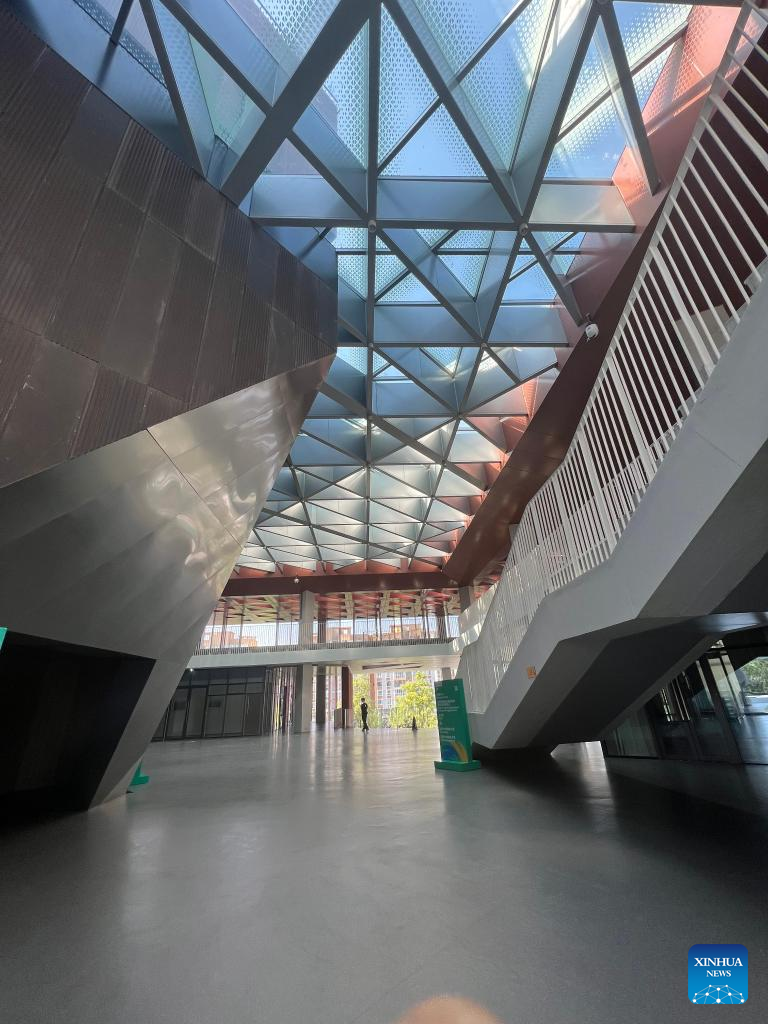
This photo taken on July 5, 2023 shows a scene at the delegation services center for the 31st International University Sports Federation (FISU) Summer World University Games in Chengdu, southwest China's Sichuan Province. (Xinhua/Kang Jinqian)
CHENGDU, July 10 (Xinhua) -- China has been actively working towards reducing carbon emissions and promoting green development, and in line with these efforts, the city of Chengdu has implemented several energy-saving and low-carbon initiatives to ensure an environmentally friendly Summer Universiade.
The 31st International University Sports Federation (FISU) Summer World University Games, which was postponed twice due to COVID-19 concerns, is scheduled from July 28 to Aug. 8 in Chengdu, the capital of southwest China's Sichuan Province.
Despite the scorching heatwave, visitors to the Universiade Village can enjoy a refreshing coolness upon entering the delegation services center, even without the use of air conditioning.
To create this remarkable architecture, designers have incorporated a distinctive structure that facilitates natural ventilation, effectively cooling the building. This technique draws inspiration from ancient Chinese practices that have been passed down through generations.
"As the air flows through a narrow area, the airflow accelerates and creates negative pressure, bringing in more fresh air and expelling more hot and humid air," said Lu Yixiu, an architect with the China Southwest Architectural Design and Research Institute Corp. Ltd., adding that the 1,400-square-meter facility saves 70,000 kWh of electricity every year if the air conditioning is not in use.
Green construction materials have been used for the event, and energy-saving LED lights have replaced conventional illuminations at all game venues.
A total of 36 existing gymnasiums and stadiums in the city have been renovated and converted into game venues instead of building new ones, helping save costs and cut carbon emissions.
In the Universiade Village, an innovative recycling box known as the "magic cube" has captured the attention of visitors, who are encouraged to deposit empty bottles, cans and paper cups into the cube. People can receive receipts for "carbon credits" in return and these receipts can then be exchanged for small gifts featuring local characteristics, such as T-shirts and canvas bags with giant panda images.
Fu Shijing, who works there, said magic cubes are available in the Universiade Village as well as in the game venues.
"We hope that these innovative initiatives can help people adopt a low-carbon lifestyle," Fu said. ■



